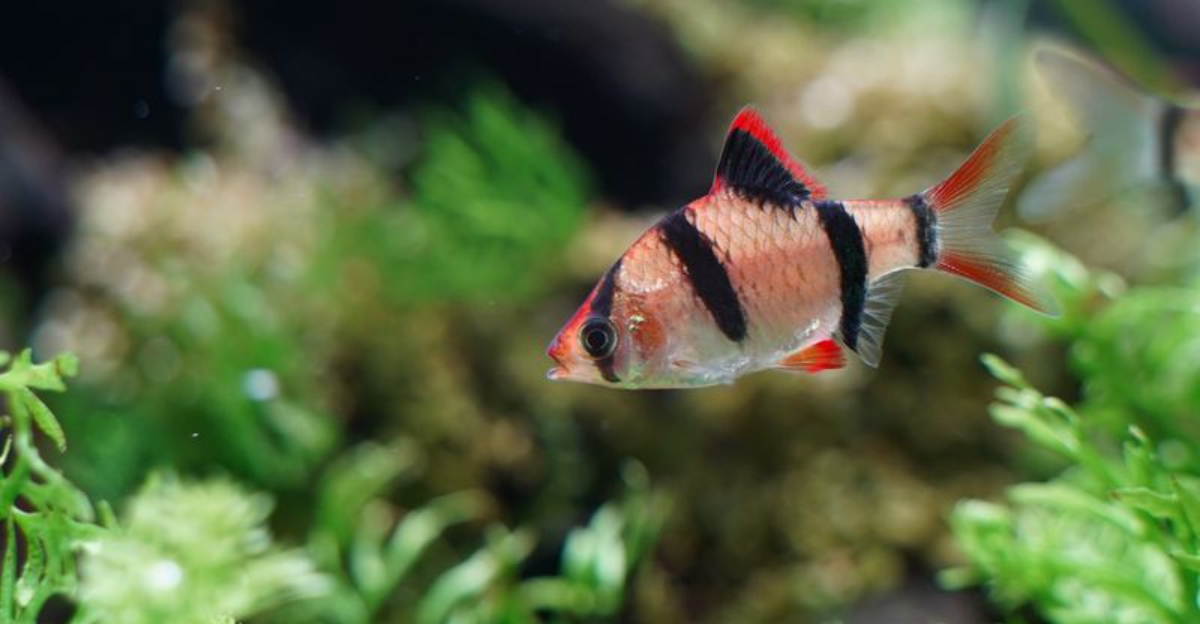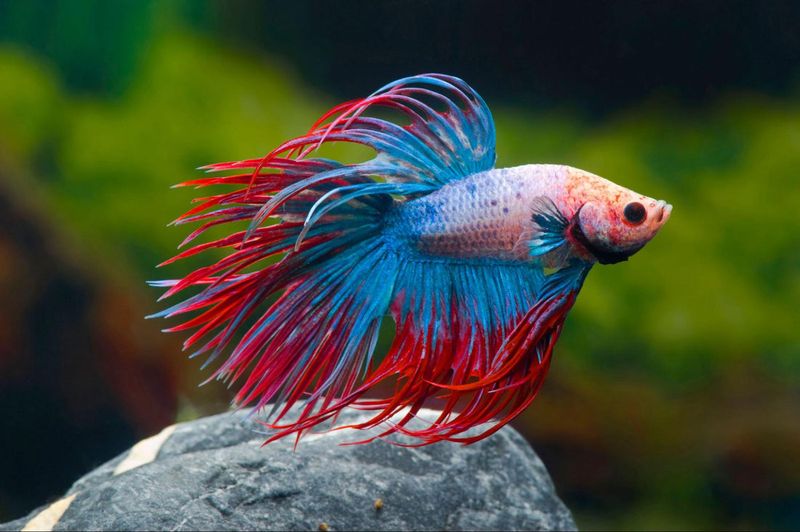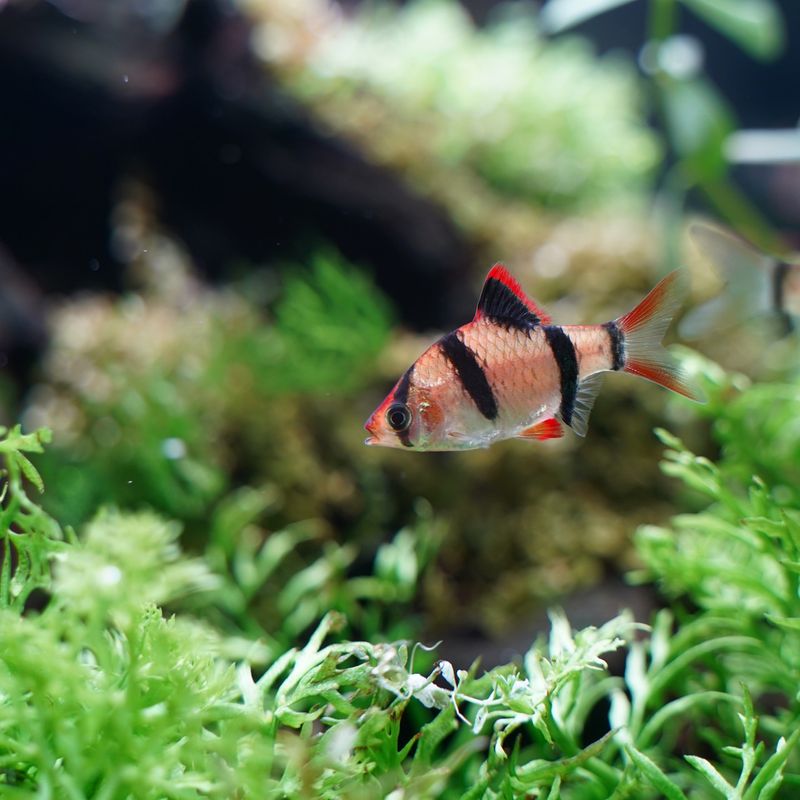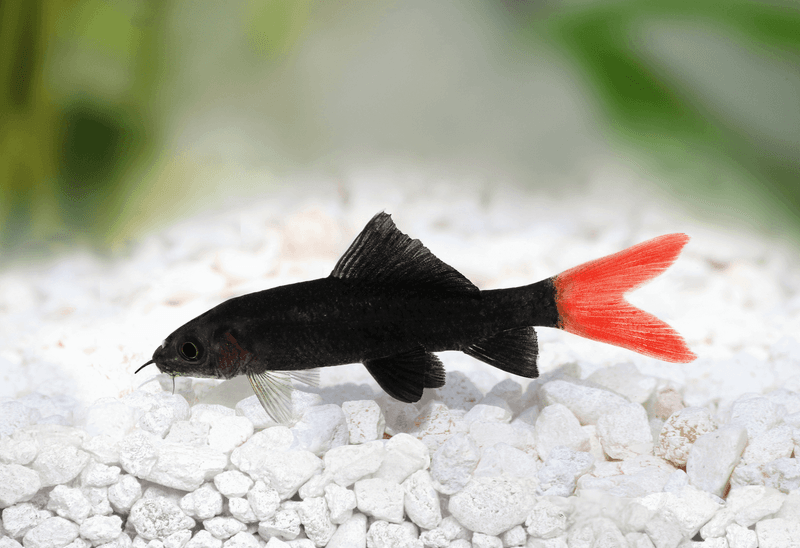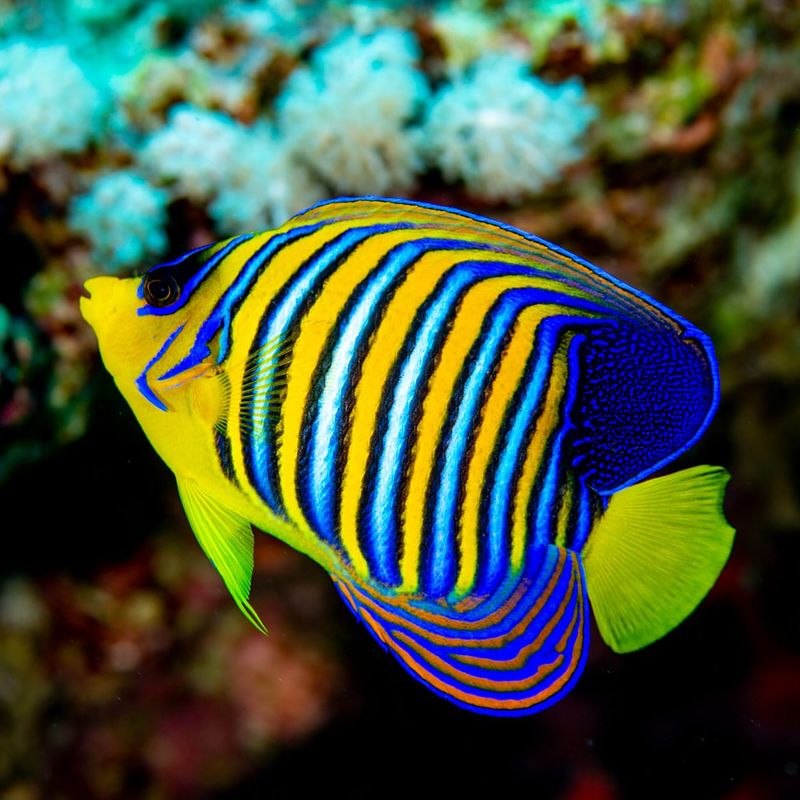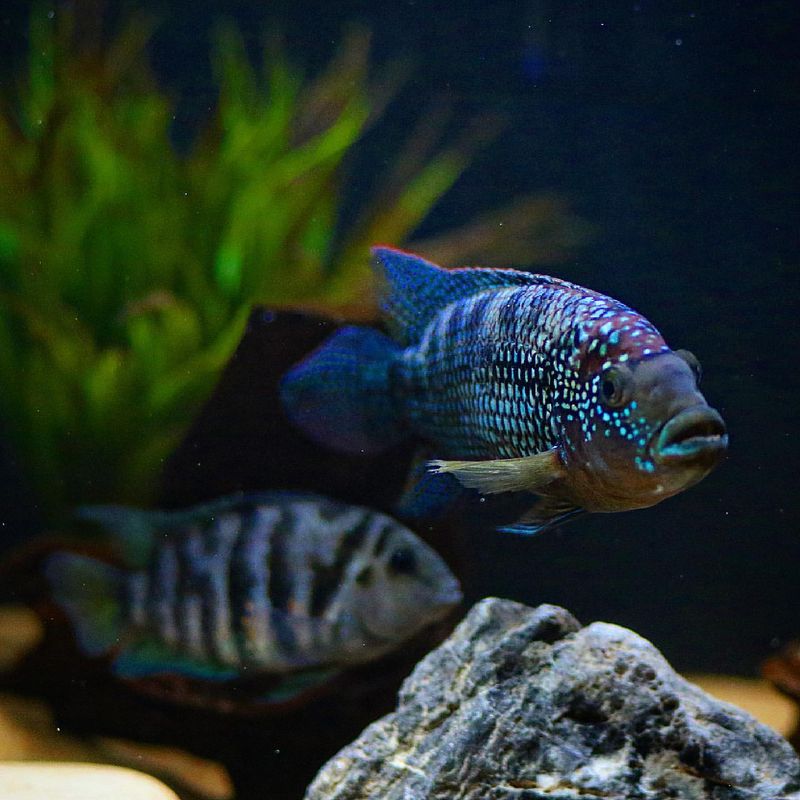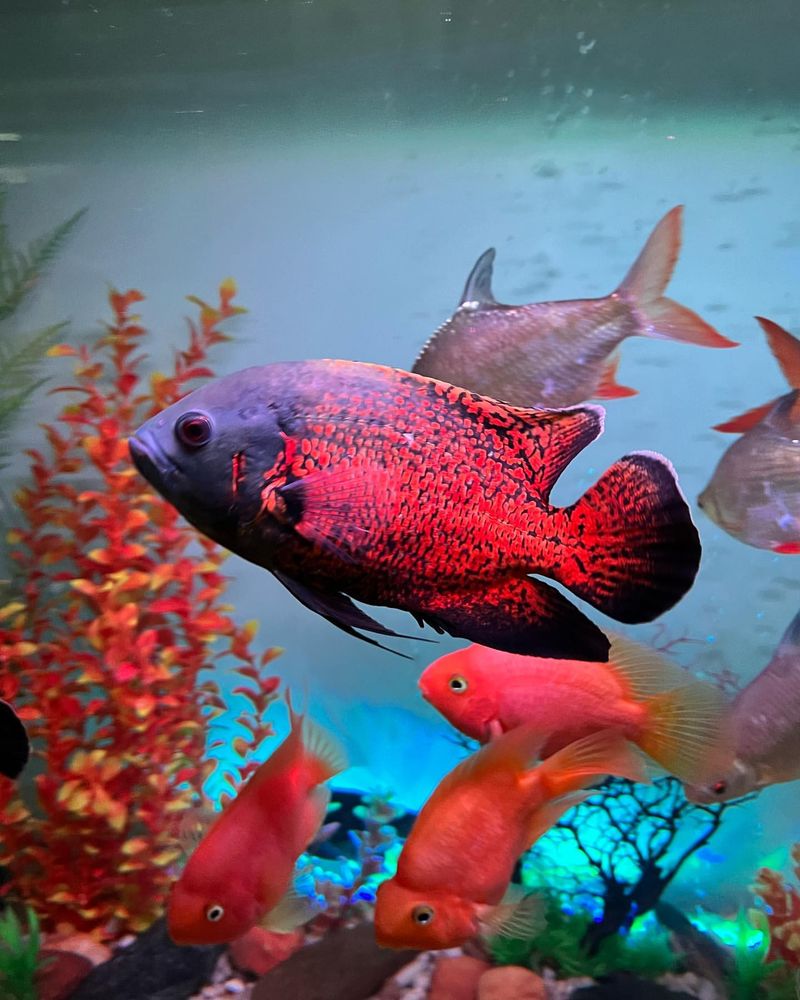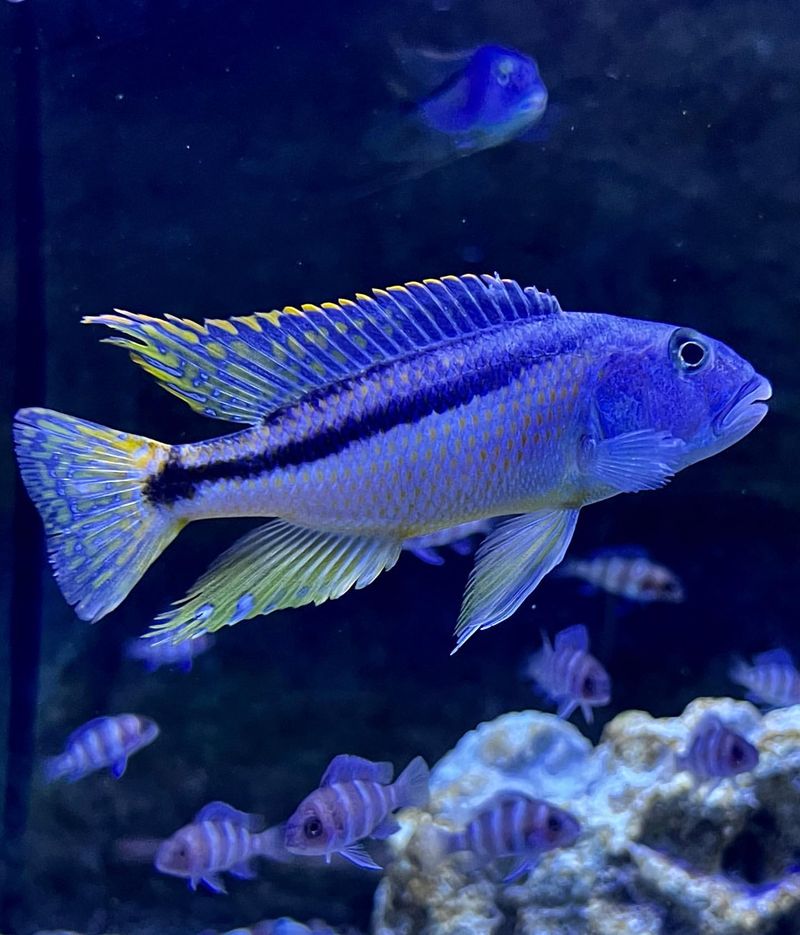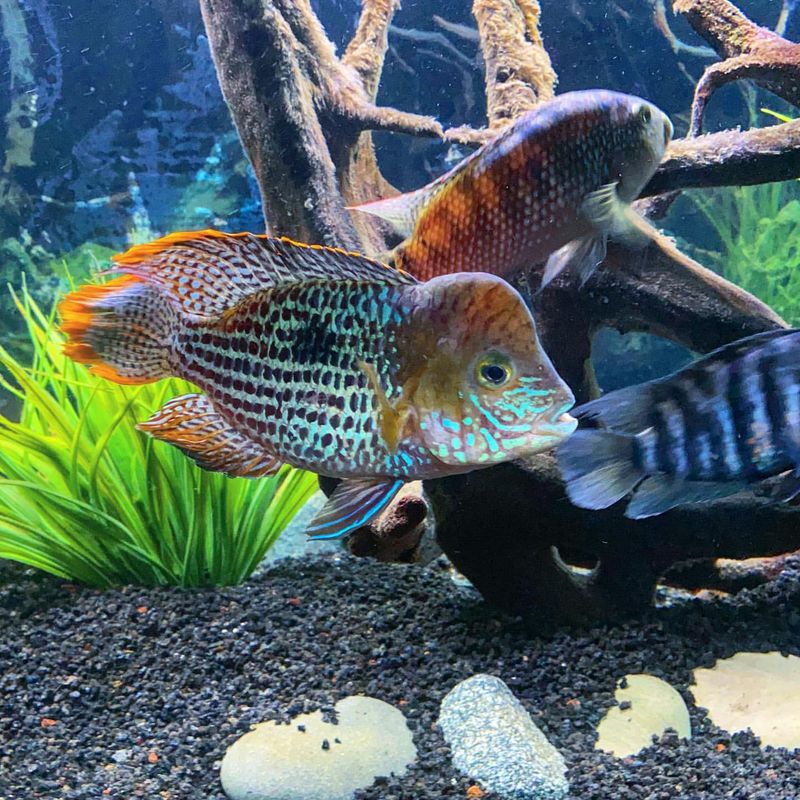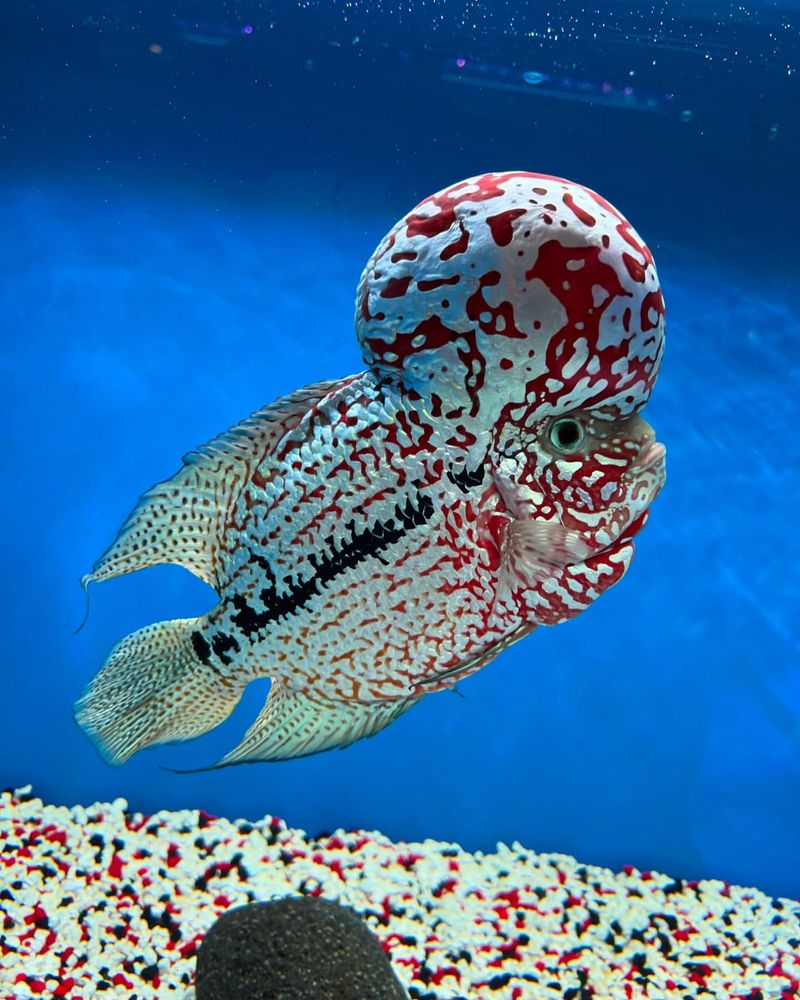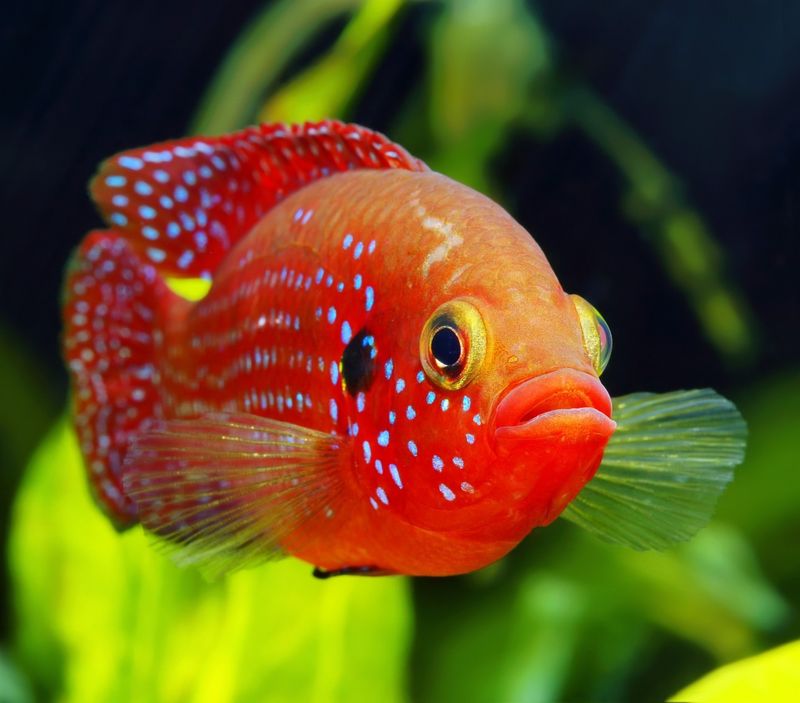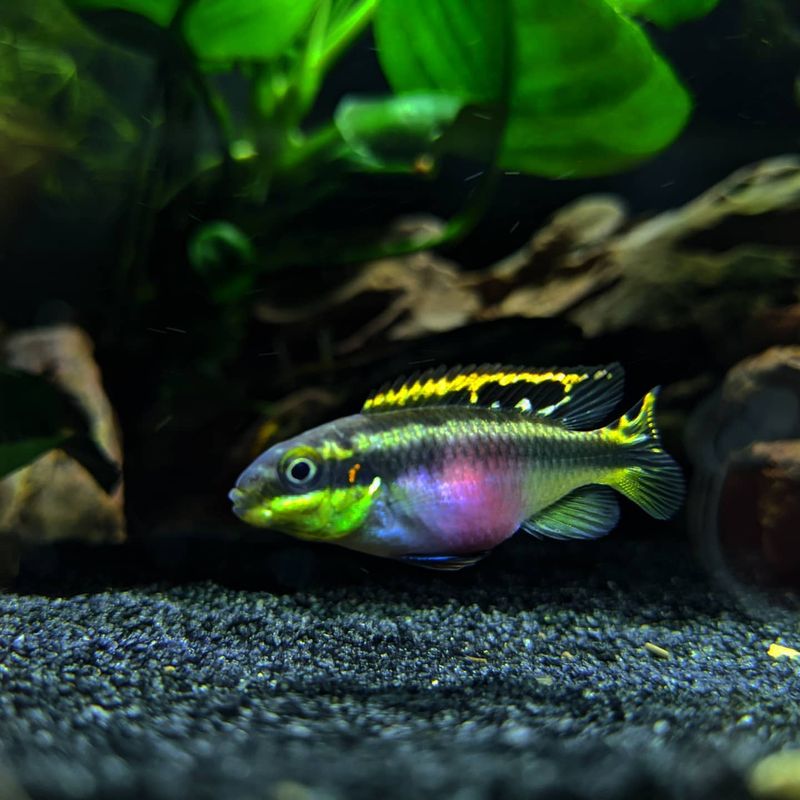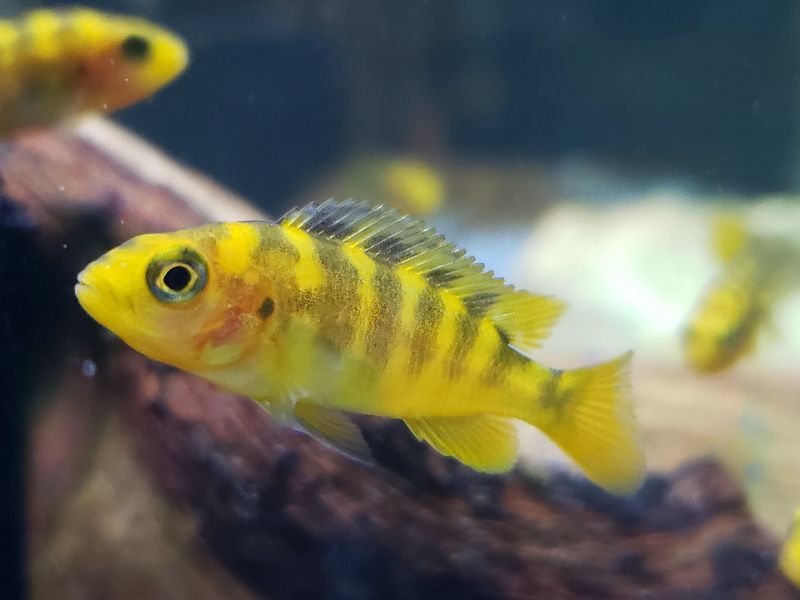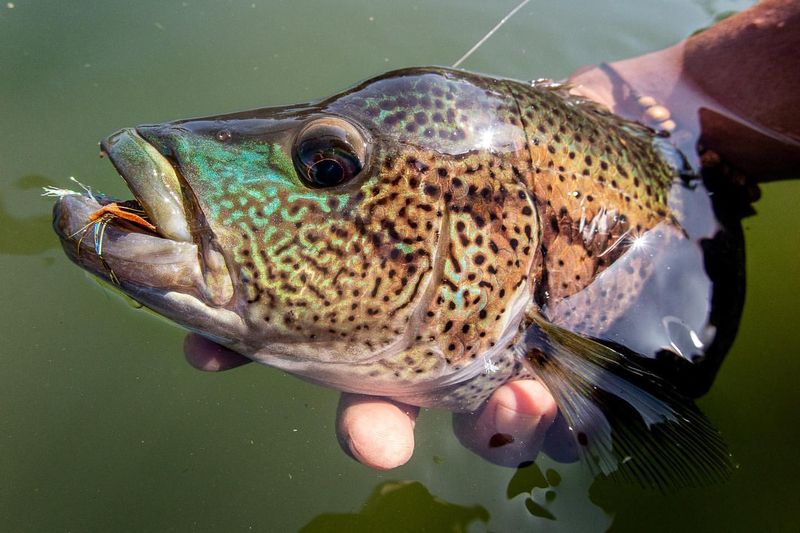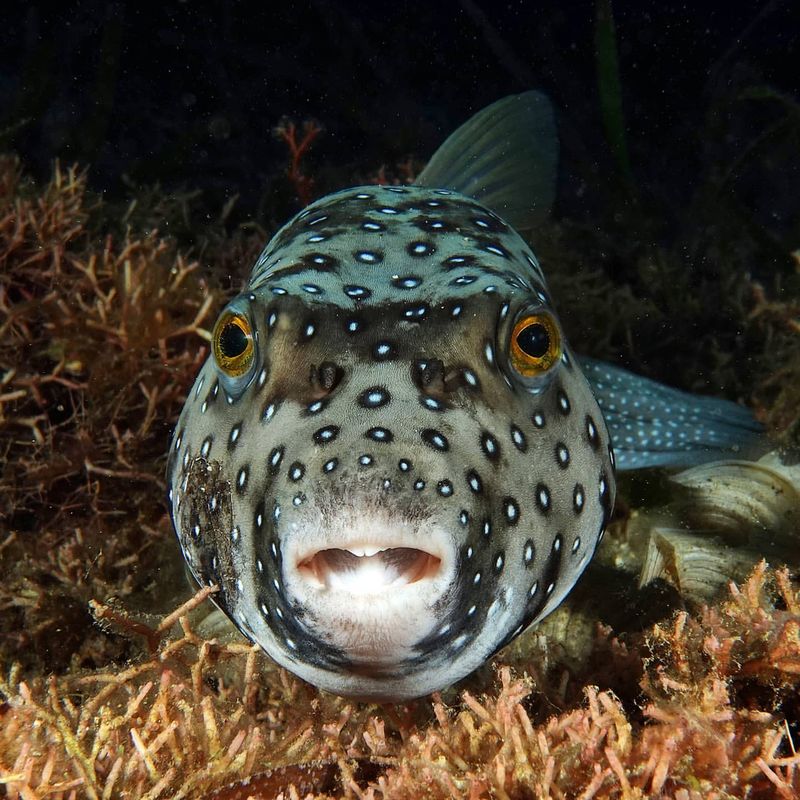📖 Table of Content:
Aquarium enthusiasts often prioritize beauty and tranquility when choosing fish, but not all vibrant swimmers are as peaceful as they seem. Some species, despite their calm appearance, have aggressive tendencies that can disrupt the harmony of a shared tank. Knowing their behavior is crucial to maintaining a balanced and stress-free aquatic environment.
These aggressive fish might stake out territory, nip at fins, or intimidate tank mates, making them challenging to house with others. Factors like tank size, stocking levels, and compatible species play a significant role in managing their aggression. By understanding their needs and tendencies, you can create a more harmonious underwater world.
Here’s a list of 15 aquarium fish that might surprise you with their combative nature. Learn how to identify and manage these aggressive species to ensure your tank remains a peaceful and thriving habitat for all its inhabitants.
1. Betta Fish
Known for their stunning colors, betta fish are often mistaken for peaceful pets. In reality, they are highly territorial and can become aggressive when housed with other males. Displays of dominance, such as flaring their fins and gills, often escalate into serious fights that may result in injury, making careful tank setup essential.
To avoid confrontation, betta fish should ideally be kept alone or with non-aggressive species. It’s essential to monitor their interactions closely and provide plenty of hiding spots if housed in a community tank.
2. Tiger Barb
Tiger barbs are small, active fish that can bring excitement to an aquarium. Despite their size, they are known to be fin-nippers. Their playful nature can quickly turn aggressive, especially when they are not kept in appropriate numbers. It is recommended to keep them in groups of six or more to disperse aggression.
Additionally, pairing them with fish that have flowing fins can lead to unwanted nipping. Providing a well-planted tank can help mitigate this behavior and create a balanced environment.
3. Red-Tail Shark
A striking addition to any aquarium, the red-tail shark is instantly recognizable for its vivid red tail. While undeniably beautiful, it is also known for its aggressive tendencies, especially toward smaller or similarly shaped fish.
This bottom-dweller is territorial and may chase away other fish. Ensuring plenty of hiding spaces can help reduce aggression by providing a retreat. They do best in larger tanks where they can establish their own territory. Care should be taken when selecting tank mates, ideally choosing species that inhabit different water levels.
4. Angelfish
Popular for their graceful appearance, angelfish can exhibit surprising aggression, particularly during breeding. They become territorial, often chasing or nipping at other fish to protect their space. This behavior tends to escalate in smaller tanks, where boundaries are more confined.
Providing ample space and a well-structured environment with tall plants can help alleviate aggression. Ideal tank mates are those that are not too small or timid.
5. Convict Cichlid
Robust and fiercely territorial, convict cichlids are often aggressive, particularly during breeding. Known for defending their young with vigor, they are less suited for community tanks. Adding ample hiding spots can help reduce aggression and create a more balanced environment.
It is crucial to choose tank mates wisely, preferably other robust cichlids that can tolerate their behavior. A spacious tank with defined territories can also help manage their aggression.
6. Jack Dempsey
Named after a famous boxer, Jack Dempsey fish are as tough as their name suggests. Known for their aggressive nature, they require careful handling.
These fish thrive in spacious tanks with plenty of hiding spots. Aggression often spikes during breeding.
Consider pairing them with other robust fish that can withstand their demeanor. While they can be kept in a community setting, careful planning is essential to maintain peace in the tank.
7. Oscar Fish
Popular and striking, oscar fish are known for their intelligence and ability to recognize their owners, making them a favorite among aquarists. However, they can become unexpectedly aggressive as they grow, requiring careful tank mate selection to maintain harmony.
However, they require a spacious tank and are best kept with other large, robust fish. Their aggressive behavior can include chasing and bullying smaller fish. Regular monitoring and providing distractions, like toys or floating objects, can help channel their energy positively.
8. African Cichlid
African cichlids are known for their vivid colors and vibrant personalities, but also their territorial aggression. They tend to establish dominance hierarchies and can be aggressive towards less dominant fish.
Ensuring plenty of hiding spaces and maintaining a larger group can help manage their aggressive tendencies. Research and planning are key to creating a peaceful African cichlid tank.
9. Green Terror
Aptly named, the green terror is known for its aggressive demeanor and territorial nature, particularly during breeding. These striking fish are best kept in tanks with other large, equally assertive tank mates to ensure compatibility.
Providing plenty of space, hiding spots, and a robust tank setup can minimize aggressive interactions. Ensuring a stable environment with few changes helps keep their aggression in check.
10. Flowerhorn Cichlid
Known for their unique appearance and assertive behavior, flowerhorn cichlids are hybrid fish with a bold personality. Highly territorial, they frequently patrol their space and exhibit aggression toward any perceived intruders.
Ideal tank mates are other large, strong fish. A spacious tank with clear territories can help manage their behavior. These fish require careful monitoring to ensure compatibility with other species.
11. Jewel Cichlid
Though stunning and vibrant, jewel cichlids can be surprisingly aggressive, especially during breeding. Their brilliant colors often mislead aquarists into underestimating their feisty and combative nature.
Providing plenty of space and hiding places helps diffuse tensions. They do best in tanks with other robust fish that can handle their temperament.
12. Kribensis
Admired for their vibrant colors, kribensis are beautiful dwarf cichlids often chosen for community tanks. Their territorial nature, however, becomes more pronounced during breeding, when they fiercely protect their nests.
To manage aggression, it’s best to pair them with fish that occupy different tank areas. Offering ample hiding spots and a well-planned tank layout can help maintain harmony.
13. Bumblebee Cichlid
With their bold, eye-catching patterns, bumblebee cichlids are as striking as they are aggressive. Highly territorial, they demand careful consideration when selecting tank mates to ensure a harmonious aquarium environment.
Providing numerous hiding places and establishing clear territories can help manage their aggression. They thrive in environments that mimic their natural rocky habitats.
14. Wolf Cichlid
Known for its size and aggression, the Wolf cichlid, or dovii, lives up to its name as a formidable predator. Best suited for solitary tanks or kept alongside equally robust companions, this fish requires careful management to thrive in an aquarium setting.
Their aggressive behavior necessitates a large tank with clear territories. They require careful management and are not recommended for beginner aquarists.
15. Pufferfish
While often perceived as cute and harmless, pufferfish can actually be quite aggressive. They are notorious for their ability to bite and are best kept alone or with very cautious tank mates.
Their unique feeding habits require a specific diet, and they need plenty of space to explore. Providing a variety of hiding spots and a stimulating environment can help reduce stress and aggression.
